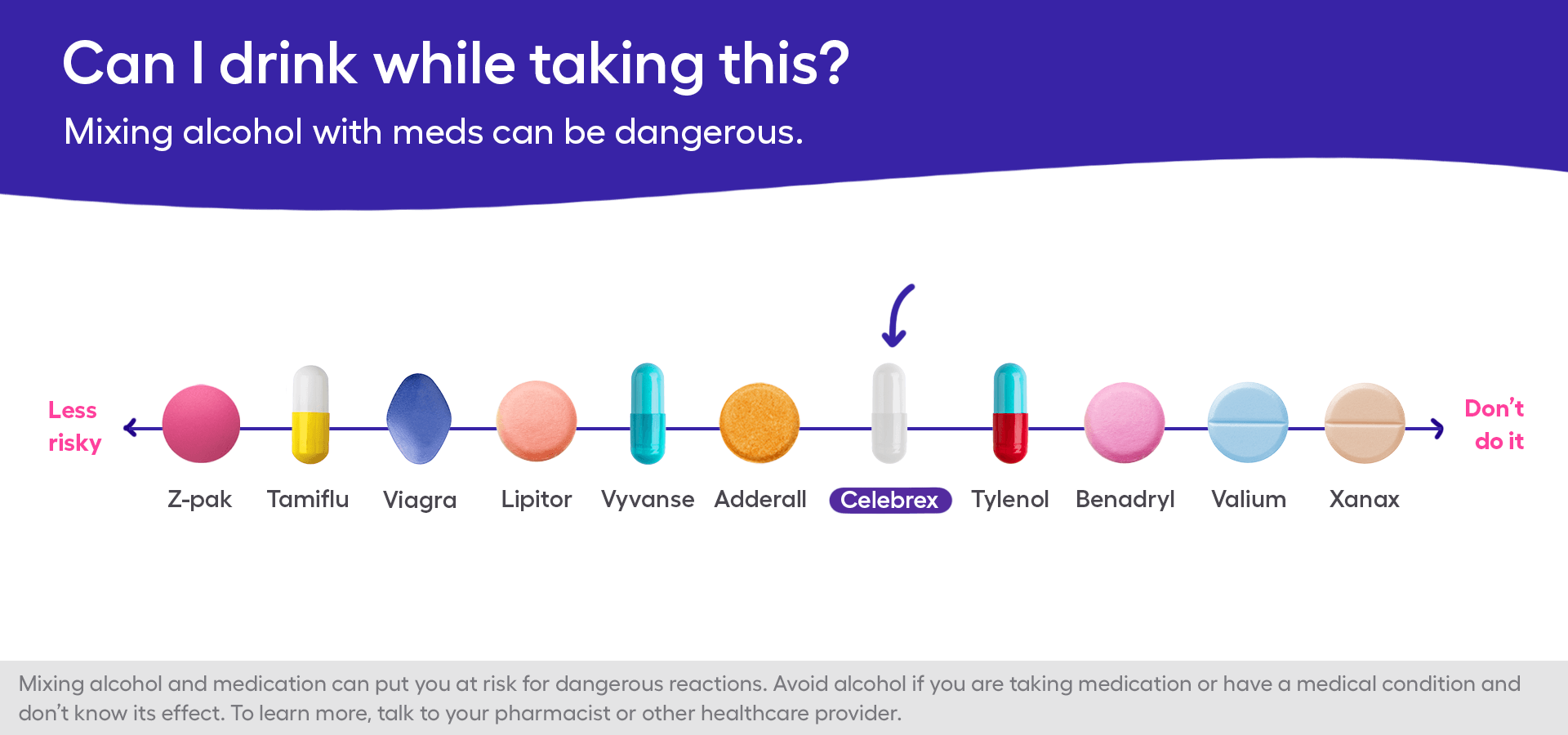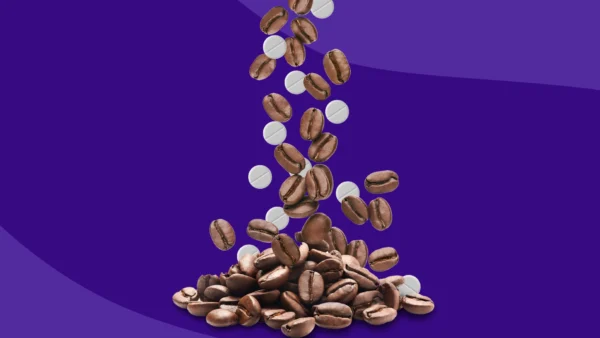Pain, swelling, and stiffness—do you experience these common symptoms of arthritis? According to the Centers for Disease Control and Prevention (CDC), 54 million adults in the United States have arthritis. That’s almost 1 in 4.
If you have arthritis or another inflammatory medical condition, your doctor may have prescribed a medication like Celebrex (celecoxib) or Mobic (meloxicam). Many people know that you should take these NSAIDs (nonsteroidal anti-inflammatory drugs) with food, but what about alcohol?
Can you combine meloxicam and alcohol? Or Celebrex and alcohol? What about over-the-counter (OTC) ibuprofen and alcohol? Let’s take a closer look at possible drug interactions with these medications and alcohol.
Can you drink alcohol with oral arthritis medication?
So, NSAIDs and alcohol…first, a little background—NSAIDs are available in both over-the-counter and prescription forms. Brand-name OTC anti-inflammatories include Motrin and Advil (which both contain ibuprofen), Aleve (naproxen), and Ecotrin (aspirin).
Prescription medications include more potent doses of ibuprofen and naproxen and other prescription drugs like Celebrex (celecoxib) and Mobic (meloxicam), among others.
All NSAIDs have a black box warning, which is the strongest warning required by the Food and Drug Administration (FDA). This warning includes information about GI bleeds and states: “NSAIDs cause an increased risk of serious gastrointestinal adverse events including bleeding, ulceration, and perforation of the stomach or intestines, which can be fatal. These events can occur at any time during use and without warning symptoms. Elderly patients are at greater risk for serious gastrointestinal events.” More details follow, including the warning that certain factors, including alcohol use, increase the risk of GI bleed with NSAIDs.
The prescribing drug information for all NSAIDs, whether they are prescription or over-the-counter, include this warning about alcohol use and increased risk of GI bleed and stomach ulcer.
It’s also worth mentioning that Tylenol (acetaminophen), commonly used for arthritis, is not categorized as an NSAID. However, Tylenol and alcohol, in combination, can result in liver damage.
Can you mix alcohol with topical arthritis medication?
Voltaren (diclofenac) is available in both an oral form and a topical gel form. The topical form is now available over the counter as well as by prescription. As members of the NSAID family of drugs, both formulations (the oral tablet and topical gel) include the same warning about GI bleeding and alcohol in the prescribing information. The same warning applies to Flector (diclofenac) topical patches. Even though they may be applied topically, these medications should still not be combined with alcohol.
Symptoms of GI bleeds
As mentioned, GI bleeds are a serious side effect of NSAIDs that can occur at any time, but the risk is higher when combining NSAIDs and alcohol. If you experience any of the following symptoms, seek medical attention:
- Vomiting blood, characterized by a red or dark brown color and coffee ground texture
- Black, tarry stool
- Rectal bleeding
- Lightheadedness
- Trouble breathing
- Fainting
- Chest pain
- Abdominal pain or cramps
Alcohol and arthritis: Does it help or hurt?
We know that alcohol doesn’t combine safely with NSAIDs used for arthritis, but can alcohol affect arthritis itself? Can alcohol cause joint inflammation?












